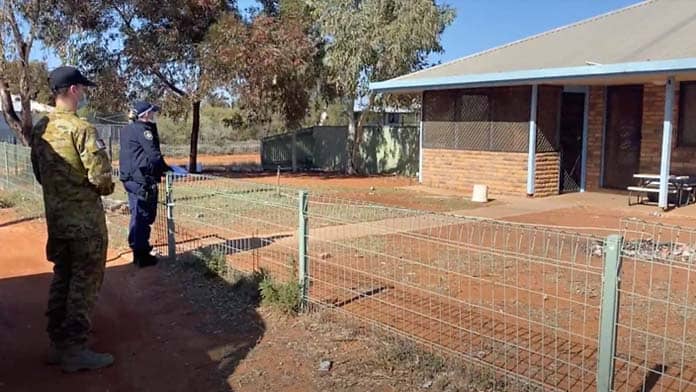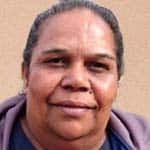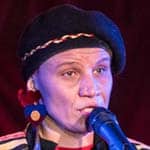Wilcannia is a majority-Aboriginal town on Barkindji country in far western-NSW. The community is in the midst of a COVID-19 crisis, with more than 20 per cent of people infected, the highest concentration of any town in Australia.
Paddy Gibson from Solidarity spoke with Monica Kerwin, a Barkindji woman and community spokesperson, and Lizzie Jarrett, a Gumbaynggirr, Bundjalung and Dunghutti activist based in Sydney, about the crisis in Wilcannia and the experience of COVID and lockdowns for Aboriginal people across NSW.
Could you talk about the period prior to the current outbreak and what steps the community had taken to try and deal with the threat of COVID?
Monica: I have sat on committees to take the voice of the Aboriginal people up to NSW Health and other agencies and we have been completely ignored. There is a big problem with racism in this town, both government and also many of the white residents are racist, so no one listened to us. We wanted to ensure food security, first and foremost, and then facilities for people to be able to isolate properly in the likely event that COVID hit our community. We have a very bad overcrowding situation with the housing here.
Lizzie: I was a member of the community in Wilcannia more about a decade ago and even then, being a Black woman who came from another mission, it was really a shock in terms of the way the community is treated, the housing conditions, the poverty, only one shop. I know that many community members have been reaching out for a long time to deal with these issues, but the government has never cared.
Monica: Twelve months ago I sat in meetings demanding that they prepare facilities for us to isolate, even tents, mattresses and sleeping bags. But when this outbreak happened and I asked for them to pull out the plans we had tried to make, we look back at the minutes and it doesn’t even note that I attended.
How has the overcrowding situation contributed to this outbreak?
Monica: There might be six families living under one roof here, but if someone tested positive to COVID they were just sent back to that same house and told to isolate, which is impossible. Many were worried they would infect their families, but they were given no information about the virus and nowhere to go. There was no PPE given, no advice, so basically the house would just keep running the same, with COVID cases using the same toilet, bathroom, washing machine as all the families, so they all became infected.
It’s OK for the white residents here, they can easily isolate in small family households or on their own. Or they can leave this town. But this is our home, we have nowhere else to go.
This seems like criminal neglect from the government, with no preparation at all for an outbreak. Vaccination rates were very low despite Aboriginal people being on the priority list from early in the year, no facilities to isolate, no plans for food security?
Monica: We had an Aboriginal health worker come out here about a month before the outbreak giving hand-outs on vaccination. I said: “A lot of the people can’t read and write properly. Hand-outs aren’t going to inform these mobs.” You need to sit with them and allow people to ask questions. Many of us have underlying health conditions and are on other medications, so need to know how the vaccine will impact on that. Take your van and park it one week in one of the Aboriginal areas and have a doctor there. People have a lot of questions and worries, including myself. I will never trust the government. But they wouldn’t listen.
The food situation early in the outbreak was a disaster. Our shop was shut down by a COVID case. There was hardly any food supplied by government. We were under basically martial law, with police and army stopping people trying to bring in food, stopping people going to town. That’s when I had to go on social media and tell the world how we are suffering. Now we have donations of food coming in and you can really feel the relief in the community, but that is from people donating right around Australia, not from the government. All they gave us was 16 pallets of dry food.
Lizzie: There’s confusing messaging and language that our people don’t understand and that’s a big part of why we aren’t getting vaccinated enough. But all the government cares about is having the army or police at your door with a loaded weapon telling you what to do.
Can you talk more about the role of the police and army in this response and what the experience has been for Aboriginal people.
Lizzie: This is a health crisis, there should be no police or any involved in addressing health problems. We need urgent assistance yes, but not police and army. The army and the police are the ones that brought the genocidal regime to our lands in the first place and we see a continuation of that colonial mindset with the response to COVID. The people on the ground have been crying out for support through the whole crisis but they have been ignored. And now, with an outbreak, the solution is, just like with the NT Intervention—because we are Black people they send in the army. Threats and intimidation, come knocking on your door demanding to see who is in your house.
We have always had to watch out for racist police whenever we leave our house as Aboriginal people, but under the COVID lockdowns they are keeping tabs on our every movement and intimidating us in our homes, frightening our children and our elders. Here in Marrickville I have had police come to my house every week through this lockdown. They say they are getting “anonymous reports” about us breaking lockdown rules, but it’s all just about intimidation. Our elders are having memories of when they were children and they lived basically under a lockdown all the time with police controlling their movement.
Monica: Here in Wilcannia it was terrifying. My husband and I have to travel three times a week to Broken Hill for dialysis and we had to pass through a road-block where they would actually search my car to see if there was anyone else from Wilcannia. When our shop was shut and no one could access meat, my cousin and many others were hunting and butchering bush meat to share out. But they were stopped at first, too, by police and not allowed to distribute the meat. They said it was “not fit for human consumption” but this is our traditional food! Thankfully that has changed, too, now, after we spoke out.
Lizzie: Caged up like this also really limits the space or platform to ensure our voices are heard, or rally support behind us. We could continue to get together and push safely for our rights but everyone is terrified of the police.
Monica: If they had allowed all the grass-roots people to have total say over how the money is spent that has brought in all these police and military, it would have been a totally different situation. We know what our people need and how to look after them, but now we are left to suffer.








